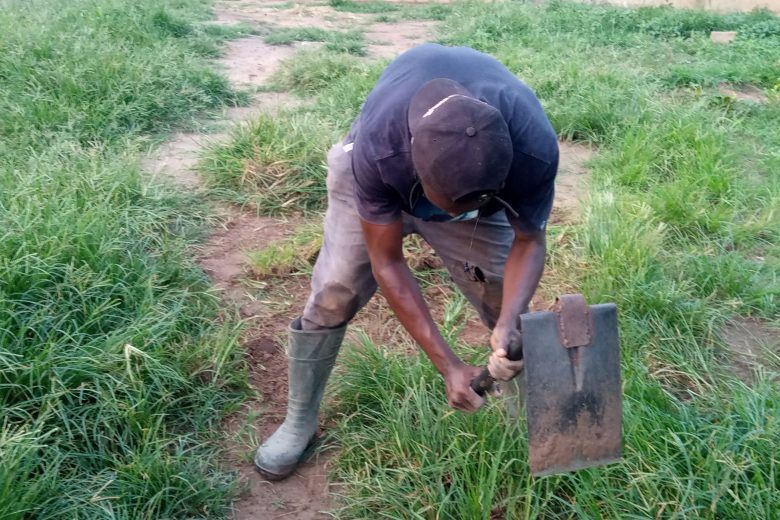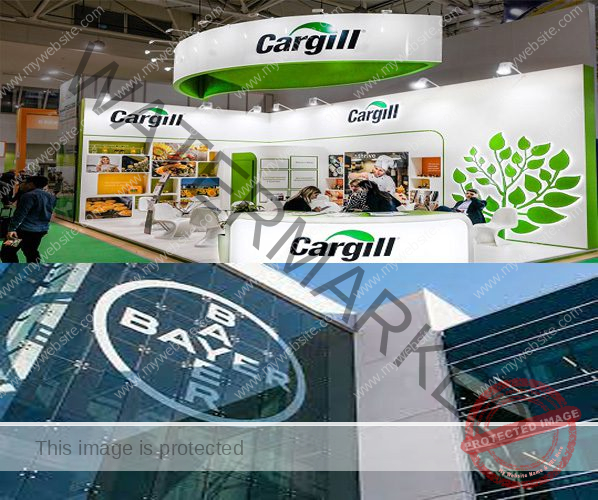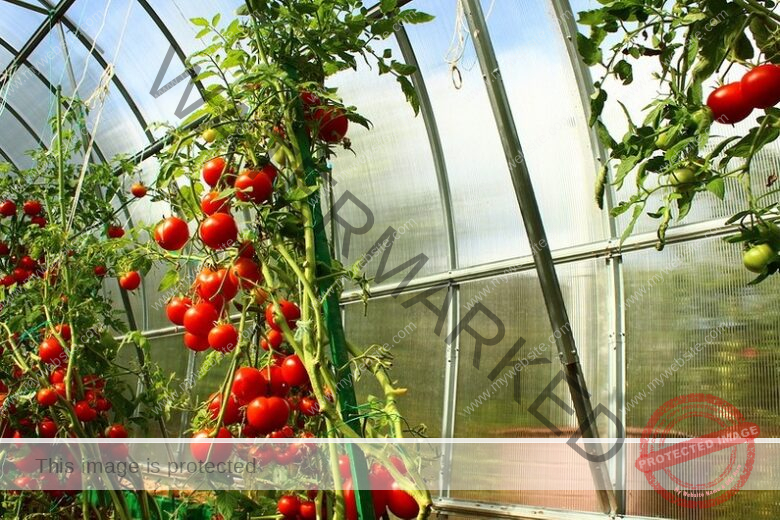Today, we will be taking you through the steps on how to start farming in Algeria. Agriculture, both cattle and crop farming is practicable in Algeria amidst the high level of arid land in the country. It is considered to be a major contributor to the country’s income for many years now.
To start farming in this country is both rewarding and challenging. The step-by-step approach to starting your farm business as discussed in this material will help you learn all that you need to know including the basics of farming.
To start farming in Algeria, you have to select an area of farming interest, acquire skills, write a business plan, get farmland, prepare the land, and start farming.
Continue reading to find everything you need to make start farming in Algeria.
How To Start Farming In Algeria Step By Step Guide
To begin your farming venture in Algeria, you have to follow the guideline provided below
Step 1: Farming Interest
Farming is a broad field but has been categorized into two main branches, animal farming, and crop farming. you must identify and choose your area of interest before you fully commit yourself to farming activities.
Read Also: Guide To Start Farming In Morocco [Step By Step]
The best way to choose your farming interest is to identify the branch that you have a passion for. This will help you make a vital decision in the long run in the profession.
Step 2: Acquire Skills
Should in case you don’t have any farming skill at all, be it animal or crop farming. you must connect with experts in your choosing farm niche to acquire knowledge and skill on how to run a successful farm.
Become an apprentice, read books, go online to research, ask questions, and employ several other ways to gather information, learn and improve your farming skill.
Step 3: Write a Business Plan
The major essence of writing a business plan is to source funding. Also, it will guide you in the farming path that you have chosen giving you a clear direction on what to do step by step.
Read Also: How To Start Farming In Botswana [Beginners Guide]
Step 4: Get Farmland
You will need to get farmland where you can carry out your farming activities. Before choosing farmland, it is important to consider the weather condition, proximity to the market, access to road and water, soil property, and other necessary factors.
Also, the farmland should be sufficient to let you start commercial farming. A minimum of one acre for a start, although the size of the farmland depends entirely on the scale of farming you intend to start.
Step 5: Land Preparation
there is a lot of work to be done during the land preparation stage. The land needs to be cleared, removing existing trees, grasses, shrubs, and other types of unwanted plants.
Plowing
You have to till the land using a plow or simple farm tools (hoe) to loosen the soil and break it into smaller particles for ideal farming activities to take place.
Also, if possible you can harrow the farmland using Harrow or tractor to smoothen and further break the soil components into smaller particles.
Farmland Spraying
Spray the farmland using herbicides to further kill weeds that were hard to clear from the farmland. Likewise, it will also help stop the quick growth of unwanted plants and also keep insects and pests at bay.
Read Also: How to Start Farming in Egypt [Beginners Guide]
Seed Bed Preparation
You have to prepare the seed beds where the crops will be planted. However, depending on the type of crop you want to plant, a seedbed is optional.
Step 6: Start Farming
This is the stage where you will begin the farming activities proper by carrying out the following activities.
Sowing
This involves planting the seeds on the prepared seed beds so that they can germinate and grow into mature plants that will produce food.
Sowing is done in different methods like direct planting, transplanting, and grafting. Depending on how fast and available the seed is, you can choose any or all of the methods.
Irrigation
Algeria is an arid land and the temperature is high as well as sparse rainfall. As such you need to find a way of watering your plants throughout the season.
Read Also: How To Start Farming Business In Liberia
Crops need water throughout their germinating stage to mature and fruiting stage. It is important to water your plants daily to provide them with the needed amount of water for their growth process.
That is why you need to create an irrigation system and channel on your farm to easily water your plants when needed.
Mulching
Considering the high temperature in Algeria and soil acidity, it is important to mulch your plant especially from planting to the germination phase. Mulching will help conserve soil moisture and protect plants from excess sunlight.
Weeding and Pest/Disease Control
Weeding, pest, and disease control are vital farming activities. you have to monitor your plant and farm at large to ensure they are healthy.
Weeding can be done by uprooting the unwanted plants from the seed beds or spray of herbicides that are not harmful to the edible plants to kill the weeds.
Also, a spray of pesticides will further keep insects and pests away from the farm.
Fertilizer Application
Fertilizer application has become part of modern agriculture. The process is often carried out at intervals just as plants grow. Fertilizer is applied to the soil to help replenish soil nutrients.
How to Start Animal Farming in Algeria
Follow the steps below to start animal farming in Algeria.
Step 1: Acquire a Farmland
Get farmland where you will raise your farm animal. Consider the weather condition and soil property among other factors before choosing farmland.
Step 2: Prepare the Land
Ensure you remove all unwanted plants on the farmland to make it ready for farming.
Step 3: Get your Animal’s Breed
Visit an animal breeder to purchase a healthy animal breed.
Step 4: Prepare the Animal Home
The animal house should be prepared before stocking the animal breeds. Items that should be in the animal house are a feeding and watering pan, lightning to provide heat, and health tool kits as well.
Step 5: Stock the Animal
This is the stage where you put the animal breeds in their respective homes to care for and raise them.
Step 6: Animal Feeding
You have to feed the animals and give them drinking water daily to provide them with the required nutrient for growth and health needs.
Step 7: Animal Management
You have to manage the animals by cleaning their houses daily for proper hygiene. Also, you have to give them the required treatment to boost their immunity against pest and disease infestation.
Is there Farming in Algeria?
Farming is practiced in Algeria both at a small scale and large-scale level. The country is known as one of the major exporters of varieties of crops chiefly wheat, barley, citrus fruits, dates, nuts, and olives.
How can I start my farming?
To start your farming, there are aspects of farming that you need to consider. Foremost. You have to identify your area of interest, then you meet with expert farmers in that niche to learn and acquire the knowledge needed.
Also, you have to get farmland, clear the land and prepare it for farming, plant your seeds, water, and weed and fertilize your farm for optimum yield during harvest.
What Crops Are Grown in Algeria?
The major crops grown in Algeria include but are not limited to barley, wheat, dates, grapes, potatoes, oats, citrus fruit, and figs.
How do I become a Beginner Farmer?
To start a farmer as a beginner with little or no experience, you have to foremost decide your area of farming interest, then draft up a plan, and visit an experienced farmer to acquire skills.
More so, you have to get your farm site, start small-scale farming as a beginner by getting farmland, land preparation, planting, mulch, irrigating and ensure you carry out weed and pest control.
What is the Main Industry in Algeria?
Algeria has a diverse economy with several sectors contributing to its economy. The main industry in Algeria is petroleum and natural gas, light industries, mining, electrical, petrochemical, and food processing industry.
What Food is made in Algeria?
Algeria is an interesting country with having diverse culture and mouth-licking local cuisine. Some of the major foods made in Algeria are Couscous, rechta, dolma, mhajeb, kesra, and tajin zitoun.
What are the Main Exports of Algeria?
Algeria’s main exports are petroleum gases, crude oil, refined petroleum oils, nitrogenous fertilizers, and ammonia.
Is Algeria self Sufficient in Food?
Algeria is heavily involved in farming activities to have sufficient food for its citizens. However, the locally produced food is not enough for the growing population in urban areas which has continuously led to an increase in food importation to complement the local production.
Can I Move to Algeria?
Yes, you can move to Algeria. But you will need a visa to gain entry into Algeria.
Is Tap Water in Algeria Drinkable?
The main water supply in Algeria is normally treated with chlorine making it relatively safe to drink. Optional drinkable water is bottled water. However, if you are settling outside the main cities and towns, you should consider the option of drinking bottled water because the water is likely to be contaminated.
What do Algerians Have for Breakfast?
Most Algerians eat locally prepared shakshouka for breakfast. The food is prepared by baking eggs in a tomato sauce along with fried vegetables.
Other breakfast options are bread eaten perhaps with jam and butter, French pastries, and honey-soaked pancakes known locally as Bagheri, among others.
What Resources does Algeria have?
The abundant natural resources in Algeria are oil, gas, solar energy, iron, zinc, lead, silicon, and helium.
Conclusion
From our discourse in this informative piece centered on how to start farming in Algeria, you have learned what you need to about setting up a farm and running in the country. Ensure you follow the step-by-step instructions and useful tips all the way.





One Reply to “[Guide] How To Start Farming In Algeria Step By Step”